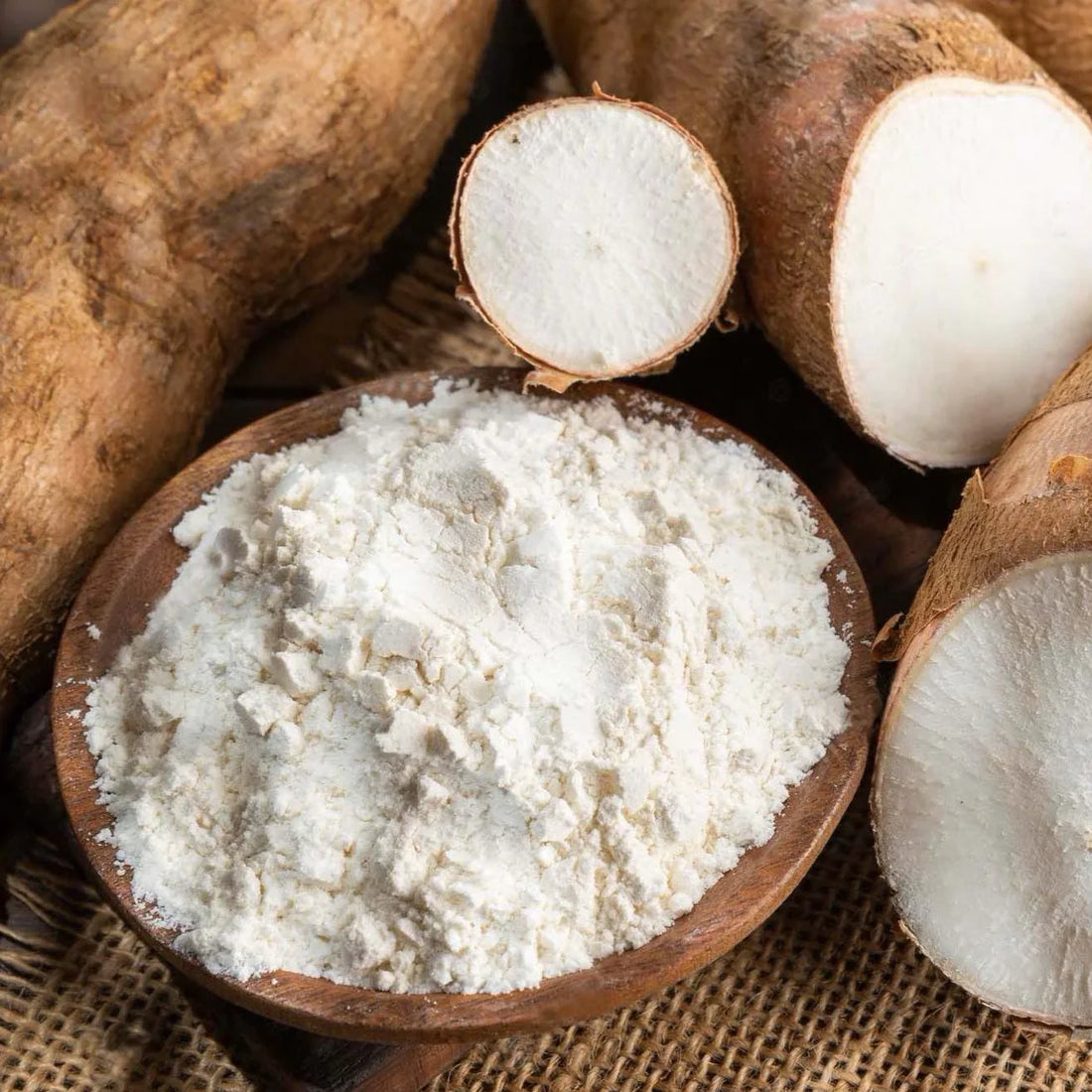
Tapioca Starch: Unveiling the Process, Exploring Health Benefits, and Drawing Conclusions
Introduction:
Tapioca starch, derived from the roots of the cassava plant, has become a staple ingredient in various cuisines around the world. Beyond its culinary applications, tapioca starch boasts an intriguing production process and impressive health benefits. In this blog post, we will delve into the introduction and processing of tapioca starch, uncover its remarkable health advantages, and conclude with insights into its overall significance.
Tapioca Starch Introduction:
Tapioca starch, also known as tapioca flour, is a fine, powdery substance extracted from the starchy tuberous roots of the cassava plant (Manihot esculenta). The cassava plant, native to South America, has been cultivated for centuries and plays a crucial role in the global food industry. Tapioca starch stands out for its versatility, neutral taste, and unique texture, making it a popular choice in sweet and savory dishes.
Tapioca Starch Production Process:
The production of tapioca starch involves a series of meticulous steps to transform cassava roots into the refined starch we commonly use. The process includes harvesting mature cassava roots, peeling and washing them to remove impurities, and grating or crushing the roots to extract the starchy liquid. This liquid is then subjected to a separation process to isolate the starch, which is subsequently dried and milled into a fine powder. Understanding this production journey helps consumers appreciate the craftsmanship behind this kitchen essential.
Health Benefits of Tapioca Starch:
- Gluten-Free Alternative: Tapioca starch serves as an excellent gluten-free substitute in various recipes, catering to individuals with gluten sensitivities or celiac disease.
- Energy Boost: As a complex carbohydrate, tapioca starch provides a steady release of energy, making it a valuable source of sustained fuel for the body.
- Resistant Starch: Tapioca starch contains resistant starch, a type of dietary fiber that supports gut health by promoting the growth of beneficial bacteria.
- Nutrient Content: While not a significant source of nutrients, tapioca starch can contribute to a well-rounded diet when used with other nutrient-rich ingredients.
Tapioca starch, renowned for its versatility and neutral taste, finds a wide range of applications in various industries. Let's explore some of the key applications of tapioca starch:
Food Industry:
- Thickening Agent: Tapioca starch is commonly used as a thickening agent in soups, sauces, gravies, and pie fillings. Its ability to create a smooth, glossy texture makes it a preferred choice for enhancing the consistency of a variety of dishes.
- Gluten-Free Baking: Given its gluten-free nature, tapioca starch is a popular ingredient in gluten-free baking. It contributes to the light and airy texture of baked goods like bread, cakes, and cookies.
Textile Industry:
- Sizing Agent: Tapioca starch is used as a sizing agent in the textile industry. It improves the weaving process by adding stiffness and smoothness to the yarn, facilitating better weaving and enhancing the quality of the finished fabric.
Paper Industry:
- Coating and Sizing: Tapioca starch is employed in the paper industry as a coating and sizing agent. It enhances the paper's strength, surface smoothness, and printability. The starch forms a protective layer on the paper surface during the manufacturing process.
Pharmaceuticals:
- Binder in Tablets: Tapioca starch is utilized as a binder in the pharmaceutical industry, especially in tablet formulations. It helps in binding the active ingredients, facilitating the production of stable and easily consumable tablets.
Adhesives:
- Glue Production: Tapioca starch is a key ingredient in the production of adhesives and glues. Its adhesive properties make it suitable for various applications, including paper bonding, packaging, and other industrial uses.
Biodegradable Plastics:
- Biodegradable Packaging: Tapioca starch is being explored as a component in producing biodegradable plastics. When combined with other biodegradable materials, tapioca starch helps create eco-friendly packaging solutions, contributing to sustainability efforts.
Personal Care Products:
- Cosmetics and Toiletries: Tapioca starch is included in cosmetic and toiletry formulations such as powders, creams, and lotions for its ability to provide a silky and smooth feel. It is often used as a natural alternative to talc.
Animal Feed:
- Pellet Binding Agent: Tapioca starch is used in the production of animal feed as a binding agent for pellets. It helps maintain the structural integrity of the pellets, making them more palatable and easier to handle.
The versatility of tapioca starch across these industries highlights its importance as a functional and reliable ingredient with a wide array of applications. As consumer preferences continue to evolve, tapioca starch's role is likely to expand even further in various sectors.
Conclusion:
Tapioca starch, with its fascinating production process and numerous health benefits, has earned its place in kitchens worldwide. As consumers become more health-conscious and seek alternatives to traditional ingredients, tapioca starch offers a versatile and nutritionally valuable option. Whether used in gluten-free baking or as a thickening agent in soups and sauces, tapioca starch continues to play a vital role in diverse culinary creations. Embracing the charm of tapioca starch goes beyond its functional applications; it encourages us to appreciate the rich tapestry of global food culture and the ingenious processes that bring such ingredients to our tables.
Check this out Medikonda Tapioca Starch
